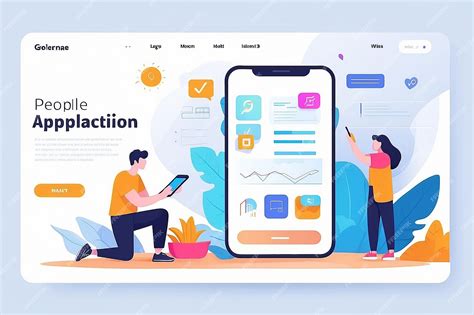Mobile apps have revolutionized the way colleges and universities operate, making it easier for students, faculty, and staff to access information, communicate, and complete tasks on the go. With the numerous apps available, it can be overwhelming to determine which ones are essential for colleges. In this article, we will explore seven essential mobile apps that can enhance the college experience.
1. Campus Safety Apps

Campus safety is a top priority for colleges, and mobile apps can play a vital role in ensuring students' safety and security. Apps like Rave Guardian, Campus Safety, and bSafe allow students to quickly alert authorities in emergency situations, share their location with friends and family, and access important safety resources.
Key Features of Campus Safety Apps:
- Emergency alert systems
- Location sharing
- Safety resource guides
- Crime reporting
2. Virtual Learning Platforms

Virtual learning platforms have become increasingly popular in colleges, enabling students to access course materials, participate in online discussions, and submit assignments remotely. Apps like Canvas, Blackboard, and Moodle provide a centralized platform for students to engage with their coursework.
Key Features of Virtual Learning Platforms:
- Course material access
- Online discussion forums
- Assignment submission
- Grade tracking
3. Campus Navigation Apps

Campus navigation apps help students navigate college campuses, find buildings, and locate parking spots. Apps like Campus Maps, Mapwize, and Wayfinding provide interactive maps, directions, and information about campus facilities.
Key Features of Campus Navigation Apps:
- Interactive campus maps
- Building directories
- Parking spot locators
- Directions and routing
4. Financial Aid and Scholarship Apps

Financial aid and scholarship apps help students navigate the complex process of applying for financial assistance. Apps like Fastweb, Scholarship Finder, and College Board provide resources for finding and applying for scholarships, grants, and other forms of financial aid.
Key Features of Financial Aid and Scholarship Apps:
- Scholarship search engines
- Financial aid calculators
- Application tracking
- Award notification
5. Campus Events and Activities Apps

Campus events and activities apps help students stay informed about upcoming events, concerts, and activities on campus. Apps like Eventbrite, Ticketmaster, and Student Affairs provide event calendars, ticket purchasing, and RSVP tracking.
Key Features of Campus Events and Activities Apps:
- Event calendars
- Ticket purchasing
- RSVP tracking
- Event reminders
6. Mental Health and Wellness Apps

Mental health and wellness apps provide students with resources and support for managing stress, anxiety, and other mental health concerns. Apps like Calm, Headspace, and Student Health provide meditation exercises, mood tracking, and access to counseling services.
Key Features of Mental Health and Wellness Apps:
- Meditation exercises
- Mood tracking
- Counseling services
- Resource guides
7. Student Engagement and Community Apps

Student engagement and community apps help students connect with peers, join clubs and organizations, and participate in campus activities. Apps like BAND, GroupMe, and Student Life provide discussion forums, event planning, and community building tools.
Key Features of Student Engagement and Community Apps:
- Discussion forums
- Event planning
- Community building tools
- Club and organization directories





What are the benefits of using mobile apps in colleges?
+Mobile apps can enhance the college experience by providing students with easy access to information, resources, and services. They can also improve communication, engagement, and productivity.
How can colleges choose the right mobile apps for their students?
+Colleges should consider their students' needs and preferences when selecting mobile apps. They should also evaluate the apps' features, functionality, and user experience.
What are some common challenges associated with implementing mobile apps in colleges?
+Some common challenges include ensuring app adoption, addressing technical issues, and maintaining data security and privacy.
In conclusion, mobile apps can play a vital role in enhancing the college experience. By providing students with easy access to information, resources, and services, mobile apps can improve communication, engagement, and productivity. Colleges should carefully evaluate their students' needs and preferences when selecting mobile apps and consider the benefits and challenges associated with implementation.
